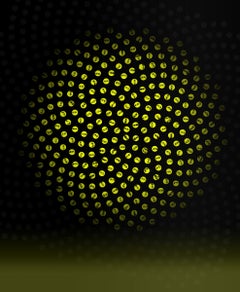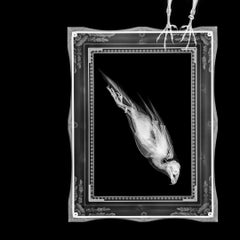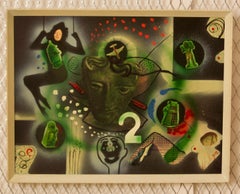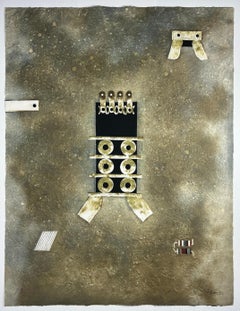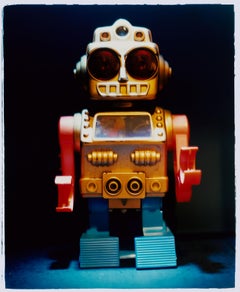Items Similar to Exterminate, Dalek X-Ray - Limited Edition Digital Print
Want more images or videos?
Request additional images or videos from the seller
1 of 5
JJ AdamsExterminate, Dalek X-Ray - Limited Edition Digital Print2015
2015
$952.42
£710
€820.85
CA$1,336.35
A$1,460.24
CHF 757.03
MX$17,444.59
NOK 9,633.73
SEK 9,019.45
DKK 6,129.48
About the Item
JJ Adams 2015 collection, "The X-Ray Illuminated Light Box Series" was an illuminated light-box (original) followed by a limited edition digital print release of six iconic subjects.
The son of a baptist preacher, JJ emigrated as a child from Plymouth in the UK to Cape Town in South Africa in the early eighties. Adams spent much of his youth around the studio of South African contemporary landscape artist Derric van Rensburg, where he discovered his love of bright colour and ‘graphic’ art. JJ studied graphic design at Cape College whilst working as an apprentice in `Wildfire Tattoos` a busy tattoo studio in central Cape Town while also working part-time as backstage crew for international bands visiting South Africa after the end of the Apartheid era. JJ finally returned to the UK in 1998 with the aim of becoming a tattoo artist.
Adams uses a range of mixed media in his work from spray paint to hand painting acrylics, screen printing, collage and digital matte painting as well as photography.
He now works from his studio overlooking the Thames Barrier in Woolwich, South East London.
- Creator:JJ Adams (South African)
- Creation Year:2015
- Dimensions:Height: 28.35 in (72 cm)Width: 22.84 in (58 cm)Depth: 0.08 in (2 mm)
- More Editions & Sizes:Limited Edition of 45Price: $952
- Medium:
- Movement & Style:
- Period:
- Condition:
- Gallery Location:London, GB
- Reference Number:1stDibs: LU73838856292
About the Seller
4.9
Vetted Professional Seller
Every seller passes strict standards for authenticity and reliability
Established in 2012
1stDibs seller since 2017
140 sales on 1stDibs
Typical response time: 12 hours
- ShippingRetrieving quote...Shipping from: London, United Kingdom
- Return Policy
More From This Seller
View AllUncle Bob Terminator, X-RAY - Limited Edition Digital Print
By JJ Adams
Located in London, GB
JJ Adams 2015 collection, "The X-Ray Illuminated Light Box Series" was an illuminated light-box (original) followed by a limited edition digital print release...
Category
2010s Contemporary Portrait Prints
Materials
Digital
Murphy [RoboCop] - X-Ray - Limited Edition Digital Print
By JJ Adams
Located in London, GB
JJ Adams 2015 collection, "The X-Ray Illuminated Light Box Series" was an illuminated light-box (original) followed by a limited edition digital print release...
Category
2010s Contemporary More Prints
Materials
Digital
Beauty in Numbers - X-Ray of Honey Bees / Fibonacci Spiral: Chromaluxe Print
By Hugh Turvey
Located in London, GB
In 2009, Hugh was appointed the first Artist in Residence for The British Institute of Radiology, since its inauguration in 1924 and Royal Charter granted by Her Majesty the Queen in...
Category
2010s Contemporary Still-life Prints
Materials
Metal
The Fastest Sagittal - contemporary inkjet xogram x-ray photo chromaluxe print
By Hugh Turvey
Located in London, GB
Edition of 40.
Hugh Turvey is a British artist and photographer who uses x-ray technology to create what he calls Xograms, a fusion of visible light and x-ray imagery.
Hugh trained as a designer / art director but on discovering photography he retrained under iconic photographer Gered Mankowitz. During 1996/1997 he started experimenting with x-ray/shadow photography...
Category
2010s Contemporary Still-life Photography
Materials
Giclée
Stargazer - contemporary inkjet xogram x-ray photo chromaluxe print
By Hugh Turvey
Located in London, GB
Edition of 40.
Hugh Turvey is a British artist and photographer who uses x-ray technology to create what he calls Xograms, a fusion of visible light and x-ray imagery.
Hugh trained as a designer / art director but on discovering photography he retrained under iconic photographer Gered Mankowitz. During 1996/1997 he started experimenting with x-ray/shadow photography...
Category
2010s Contemporary Still-life Photography
Materials
Giclée
Borough Superior SS100 (Blue on Black) Lawerence of Arabia - Chromaluxe Print
By Hugh Turvey
Located in London, GB
Chromaluxe Price includes a black contemporary tray frame.
In 2009, Hugh was appointed the first Artist in Residence for The British Institute of Radiology, since its inauguration ...
Category
2010s Contemporary Still-life Prints
Materials
Metal
You May Also Like
Conquerors Q - Abstract Dr Who Sci Fi - Mid 20th Century by George De Goya
By George De Goya
Located in Watford, Hertfordshire
Professor George De Goya. PhD. MA. FRSA. Born In Budapest, 1915-1992, related to the Spanish artist Goya on his mother’s side. Educated in Budapest and France where he received a de...
Category
1970s Abstract Abstract Paintings
Materials
Mixed Media
English "Mariposa obsidiana 8", 1981 signed limited edition original art print
Located in Miami, FL
Brian Nissen (England, 1939)
'Mariposa obsidiana 8', 1981
engraving on paper
27.6 x 21.3 in. (70 x 54 cm.)
Unframed
ID: NIS1331-007-000
Hand-signed by author
________________________...
Category
1980s Contemporary Prints and Multiples
Materials
Paper, Engraving, Screen
Darth Bot - Pop Art Color Photography
By Natasha Heidler
Located in Cambridge, GB
Darth Bot, Natasha Heidler brings childhood favourite toys to life in her conceptual photography.
This artwork is a limited edition of 25, gloss photo...
Category
2010s Pop Art Color Photography
Materials
Photographic Paper, C Print, Color, Silver Gelatin
Darth Bot - Pop Art Color Photography
By Natasha Heidler
Located in Cambridge, GB
Darth Bot, Natasha Heidler brings childhood favourite toys to life in her conceptual photography.
This artwork is a limited edition of 25, gloss photo...
Category
2010s Pop Art Color Photography
Materials
Photographic Paper, C Print, Color, Silver Gelatin
Darth Bot - Pop Art Color Photography
By Natasha Heidler
Located in Cambridge, GB
Darth Bot, Natasha Heidler brings childhood favourite toys to life in her conceptual photography.
This artwork is a limited edition of 25, gloss photo...
Category
2010s Pop Art Color Photography
Materials
Photographic Paper, C Print, Color, Silver Gelatin
Untitled (from ROBOTNICS Series)
By Christian Rothmann
Located in Kansas City, MO
Christian Rothmann
ROBOTNICS Series
C-Print
2019
Edition S (Edition of 10)
12 x 8.3 inches (30.5 x 21 cm)
Signed, dated and numbered verso
Other Edition Sizes available:
- Edition M (Edition of 6) 35.4 x 23.6 inches (90 x 60 cm)
- Edition L (Edition of 6) 47.2 x 31.5 inches (120 x 80 cm)
- Edition XL (Edition of 3) 88.8 x 58.8 inches (225 x 150 cm)
PUR - Price Upon Request
--------------
Since 1979 Christian Rothmann had more than 40 solo and 80 group exhibitions worldwide.
Christian Rothmann had guest lectures, residencies, art fairs and biennials in Europe, Japan, USA, Australia and Korea.
Christian Rothmann (born 1954 in Kędzierzyn, Poland ) is a painter, photographer, and graphic artist.
In 1976 he first studied at the “Hochschule für Gestaltung” in Offenbach, Germany and moved to Berlin in 1977, where he graduated in 1983 at the “Hochschule der Künste”. From 1983 to 1995 he taught at the university as a lecturer and as an artist with a focus on screenprinting and American art history. To date, a versatile body of work has been created, which includes not only paintings but also long-standing photo projects, videos, and public art.
Guest lectures, teaching assignments, scholarships and exhibitions regularly lead Rothmann to travel home and abroad.
------------------------
Rothmann's Robots
These creatures date back to another era, and they connect the past and the future. They were found by Christian Rothmann, a Berlin artist, collector and traveler through time and the world: In shops in Germany and Japan, Israel and America, his keen eye picks out objects cast aside by previous generations, but which lend themselves to his own work. In a similar way, he came across a stash of historic toy robots of varied provenance collected by a Berlin gallery owner many years ago. Most of them were screwed and riveted together in the 1960s and 70s by Metal House, a Japanese company that still exists today. In systematically photographing these humanoids made of tin - and later plastic - Rothmann is paraphrasing the idea of appropriation art. Unknown names designed and made the toys, which some five decades on, Rothmann depicts and emblematizes in his extensive photo sequence.
In their photographs of Selim Varol's vast toy collection, his German colleagues Daniel and Geo Fuchs captured both the stereotypical and individual in plastic figures that imitate superheroes which were and still are generally manufactured somewhere in Asia. Christian Rothmann looks his robots deep in their artificially stylized, painted or corrugated eyes - or more aptly, their eye slits - and although each has a certain degree of individuality, the little figures remain unknown to us; they project nothing and are not alter egos. Rothmann trains his lens on their faces and expressions, and thus, his portraits are born. Up extremely close, dust, dents, and rust become visible. In other words, what we see is time-traces of time that has passed since the figures were made, or during their period in a Berlin attic, and - considering that he robots date back to Rothmann's childhood - time lived by the photographer and recipients of his pictures. But unlike dolls, these mechanical robots bear no reference to the ideal of beauty at the time of their manufacture, and their features are in no way modeled on a concrete child's face.
In this art project the robots appear as figures without a context, photographed face-on, cropped in front of a neutral background and reduced to their qualities of form. But beyond the reproduction and documentation a game with surfaces is going on; our view lingers on the outer skin of the object, or on the layer over it. The inside - which can be found beneath - is to an extent metaphysical, occurring inside the observer's mind. Only rarely is there anything to see behind the robot's helmet. When an occasional human face does peer out, it turns the figure into a robot-like protective casing for an astronaut of the future.
If we really stop and think about modern toys, let's say those produced from the mid 20th century, when Disney and Marvel films were already stimulating a massive appetite for merchandising, the question must be: do such fantasy and hybrid creatures belong, does something like artificial intelligence already belong to the broader community of humans and animals? It is already a decade or two since the wave of Tamagotchis washed in from Japan, moved children to feed and entertain their newly born electronic chicks in the way they would a real pet, or to run the risk of seeing them die. It was a new form of artificial life, but the relationship between people and machines becomes problematic when the machines or humanoid robots have excellent fine motor skills and artificial intelligence and sensitivity on a par with, or even greater than that of humans. Luckily we have not reached that point yet, even if Hollywood adaptations would have us believe we are not far away.
Rothmann's robots are initially sweet toys, and each toy is known to have a different effect on children and adults. They are conceived by (adult) designers as a means of translating or retelling history or reality through miniature animals, knights, and soldiers. In the case of monsters, mythical creatures, and robots, it is more about creating visions of the future and parallel worlds. Certainly, since the success of fantasy books and films such as Lord of the Rings or The Hobbit, we see the potential for vast enthusiasm for such parallel worlds. Successful computer and online games such as World
of Warcraft, or the creation of avatars are also interesting worldwide phenomena of virtual realities that are not only relevant for children and teens.
So when a middle-aged Berlin photographic artist (like Christian Rothmann) chooses to study 120 toy robots with great difference in form, it represents a journey back to his own childhood - even if at the time, he played with a steam engine rather than a robot. Once batteries had been inserted, some of the largely male or gender-neutral robots, could flash, shoot, turn around and even do more complicated things. Some can even still do it today - albeit clumsily. This, of course, can only be seen on film, but the artist intends to document that as well; to feature the robots in filmic works of art.
The positioning of the figures in the studio is the same as the tableau of pictures in the exhibition room. In this way, one could say Rothmann deploys one robot after the other. This systematic approach enables a comparative view; the extreme enlargement of what are actually small and manageable figures is like the macro vision of insects whose fascinating, sometimes monster-like appearance only becomes visible when they are blown up a hundredfold. The same thing goes for the robots; in miniature form, they seem harmless and cute, but if they were larger than humans and made noises to match, they would seem more threatening.
Some of the tin figures...
Category
2010s Contemporary Photography
Materials
C Print
More Ways To Browse
Used Light Boxes
Yusaku Kamekura
Zakopane Poster
1920 Vintage Stove
Adolf Luther
Akira Yamaguchi
Alekos Fassianos On Sale
Alex Katz Good Afternoon 2
Alex Katz Rose Bud
Alex Katz Rose
Alexander Chen Signed Prints
Alice In Wonderland Guinness
Amado Gonzalez
Art Deco Posters Food
Atelier America Inc
Banksy Tesco
Barbara Falk
Beatrice Mallet
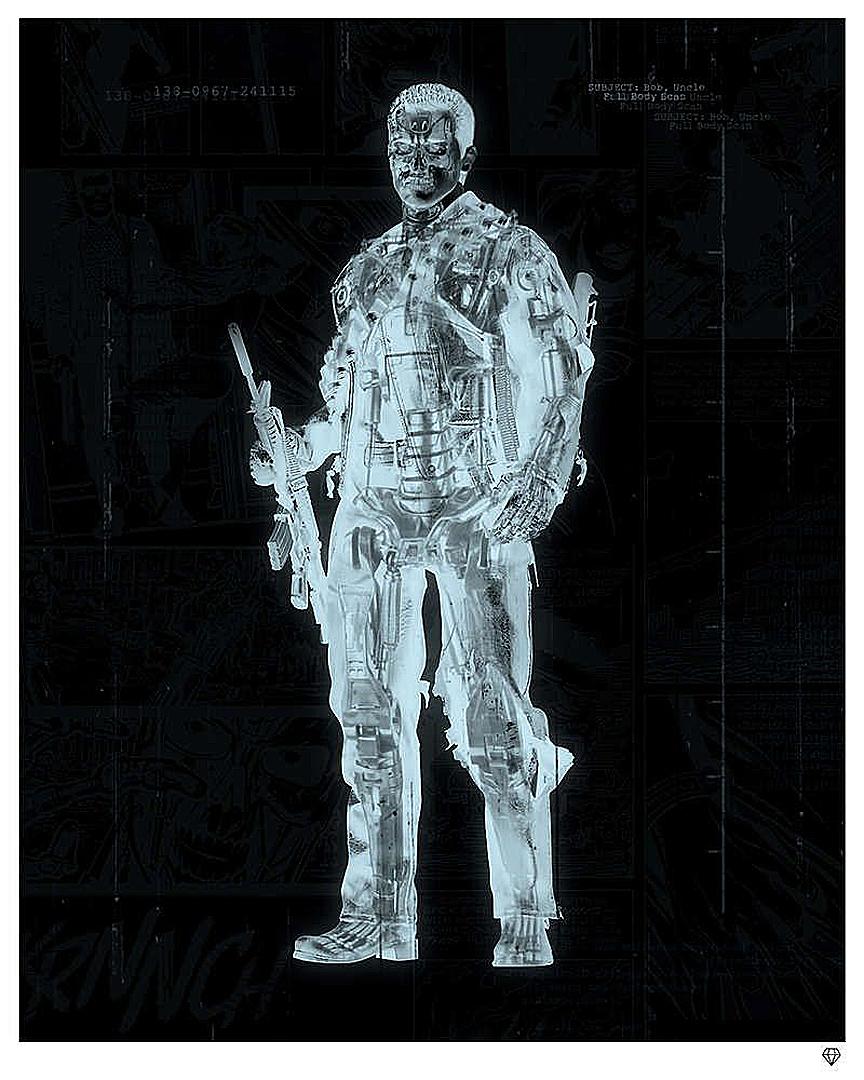
![Murphy [RoboCop] - X-Ray - Limited Edition Digital Print](https://a.1stdibscdn.com/jj-adams-prints-works-on-paper-murphy-robocop-x-ray-limited-edition-digital-print-for-sale/a_7383/1632583624746/Murphy_X_RAY_72x58cm_710GBP_LtdEd45_Digital_Print_master.jpg)
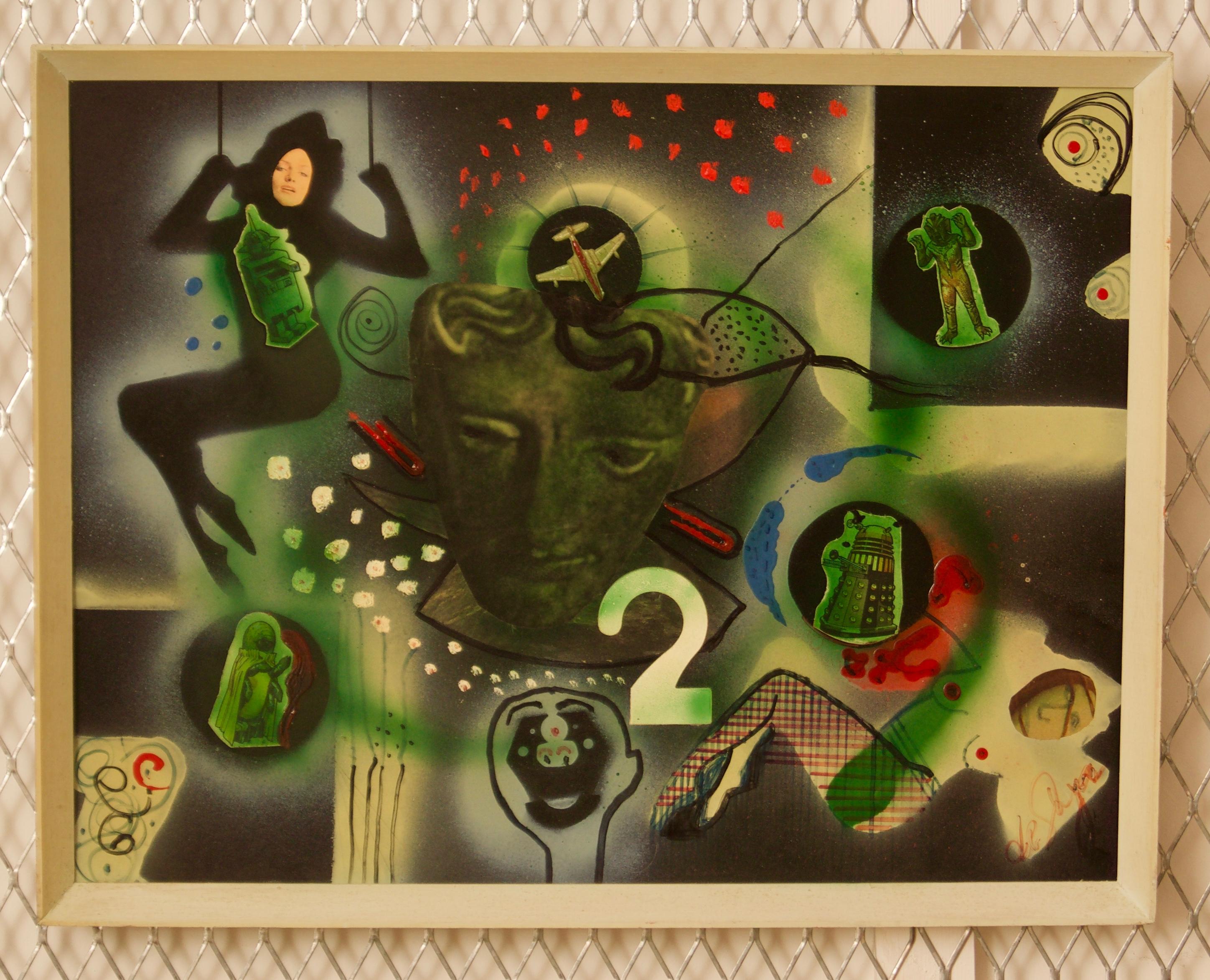
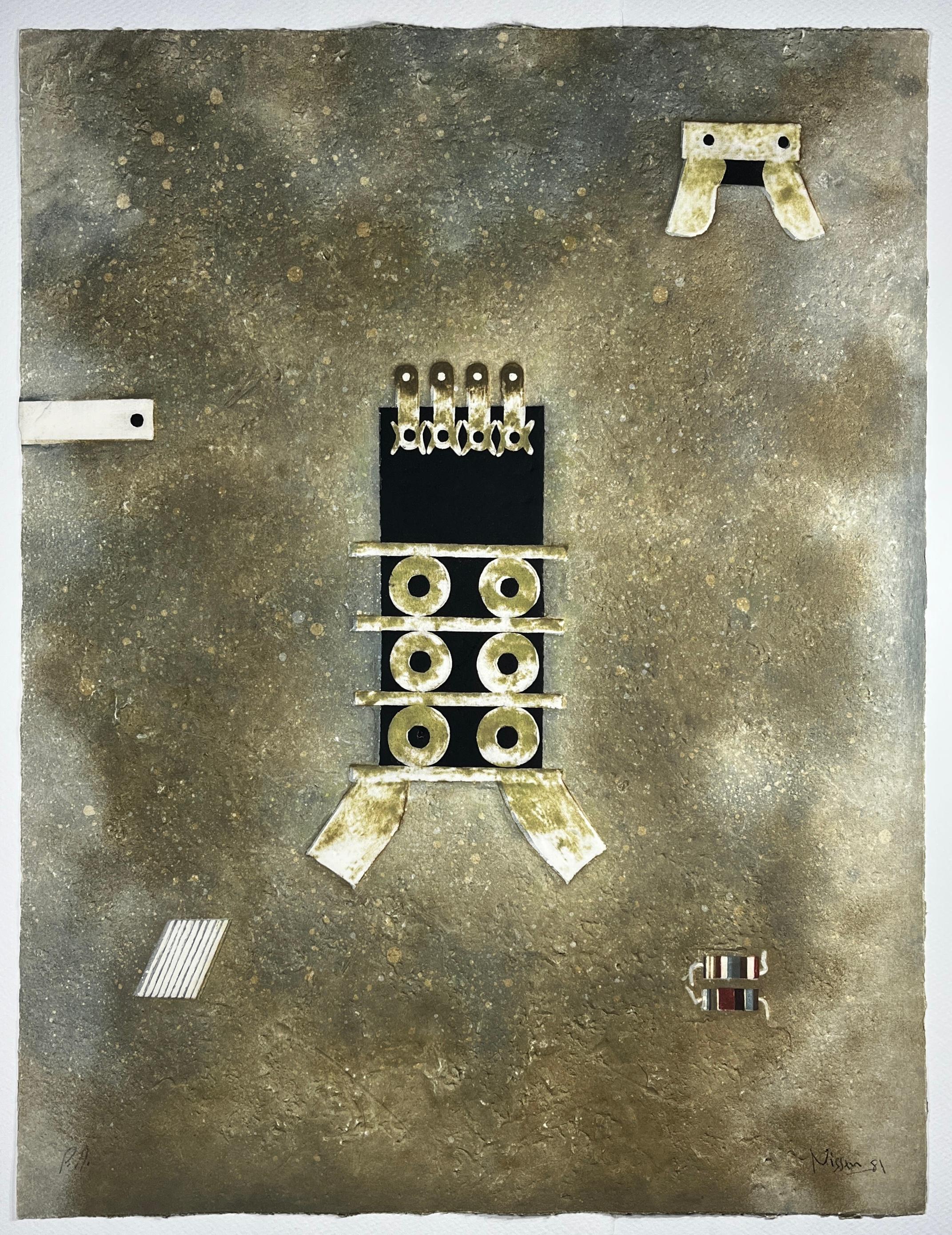
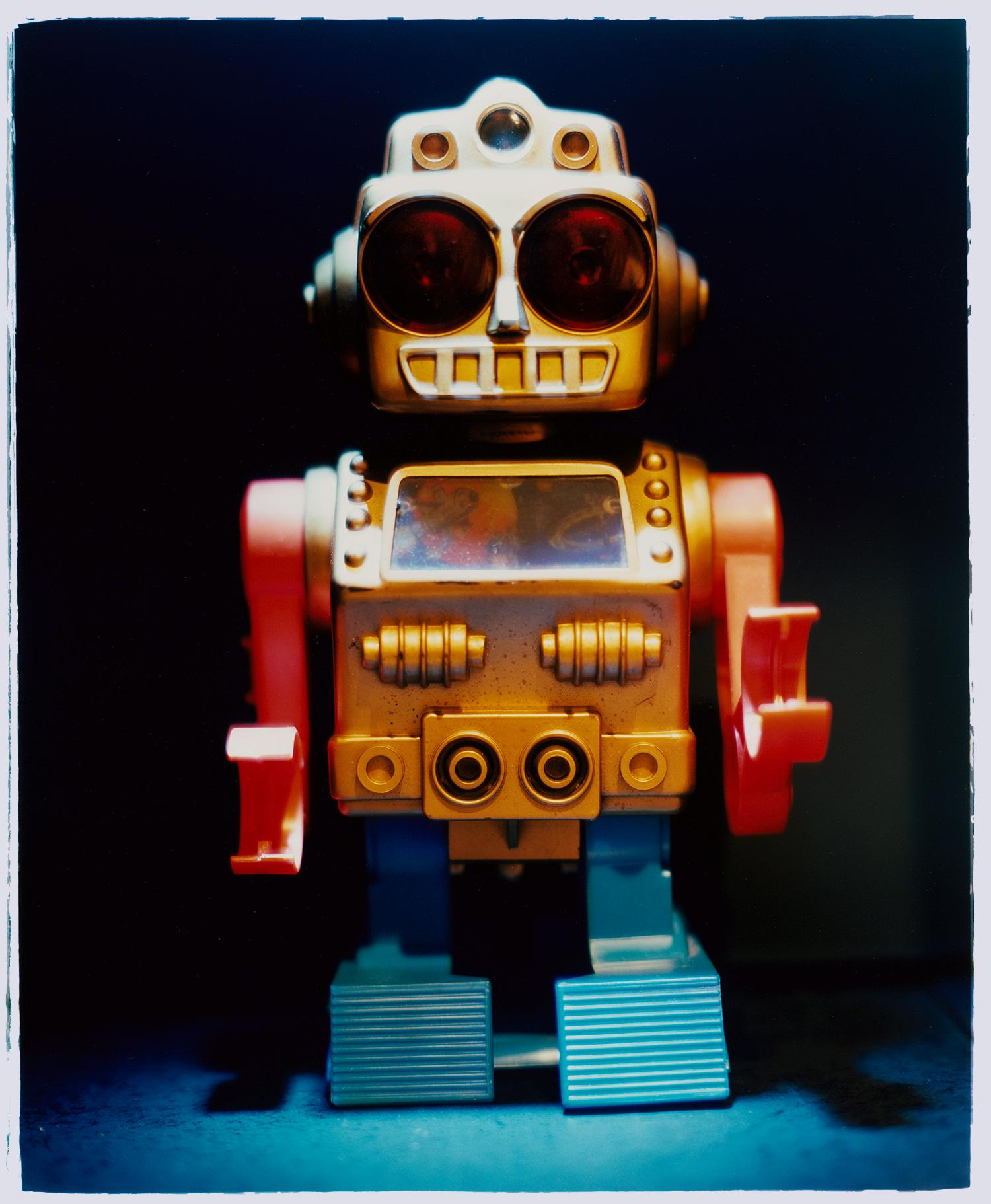

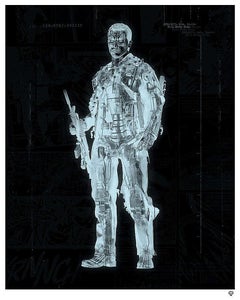
![Murphy [RoboCop] - X-Ray - Limited Edition Digital Print](https://a.1stdibscdn.com/jj-adams-prints-works-on-paper-murphy-robocop-x-ray-limited-edition-digital-print-for-sale/a_7383/1632583624746/Murphy_X_RAY_72x58cm_710GBP_LtdEd45_Digital_Print_master.jpg?width=240)
